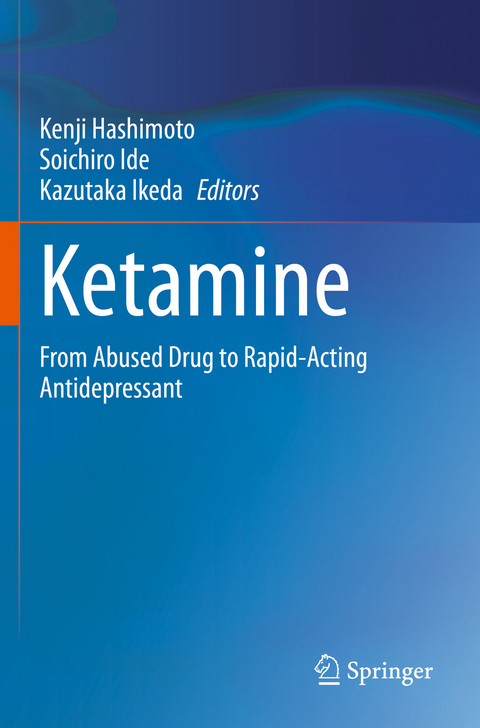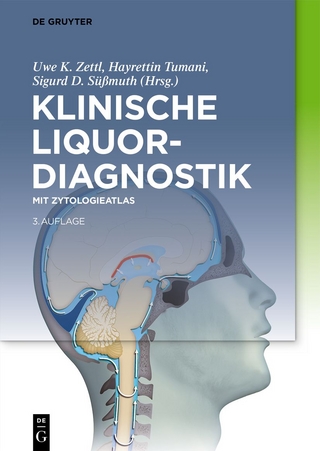
Ketamine
Springer Verlag, Singapore
978-981-15-2904-7 (ISBN)
Kenji Hashimoto, Chiba University, Chiba, Japan Dr. Hashimoto is a Professor and Vice-Director of the Center for Forensic Mental Health at Chiba University. He holds a PhD from the Faculty of Pharmaceutical Sciences at Kyushu University. After working at Fukuyama University, NIH/NIDA (Baltimore, MD) and a pharmaceutical company, he moved to Chiba University Graduate School of Medicine, where he works on the development of novel therapeutic drugs for psychiatric and neurological disorders. Dr. Hashimoto has published more than 500 articles in PubMed listed publications. Soichiro Ide, Tokyo Metropolitan Institute of Medical Science, Tokyo, Japan Dr. Ide is a Chief Researcher in the Addictive Substance Project, Tokyo Metropolitan Institute of Medical Science. He holds a PhD from the Graduate School and Faculty of Pharmaceutical Sciences at Kyoto University. Dr. Ide taught and undertook research research at Hiroshima International University and Hokkaido University, before moving to his current laboratory. He is currently conducting neuropsychopharmacological research using behavioral pharmacological techniques on topics such as pain, depression, and stress. Dr. Ide has published 60 papers in PubMed listed publications. Kazutaka Ikeda, Tokyo Metropolitan Institute of Medical Science, Tokyo, Japan Dr. Ikeda is Project Leader of the Addictive Substance Project and Chair of the Department of Psychiatry and Behavioral Sciences, Tokyo Metropolitan Institute of Medical Science. He graduated from the Faculty of Engineering at The University of Tokyo, and holds a Master’s degree from Osaka University and a PhD from Niigata University. Dr. Ikeda has worked at RIKEN, Tokyo Metropolitan Institute of Psychiatry, and was President of the Japanese Society of Neuropsychopharmacology and of the Asian College of Neuropsychopharmacology. His research focuses on neuropsychopharmacology, especially for addiction, pain, neurodevelopmental disorders, schizophrenia and depression. He has published more than 180 articles in PubMed listed publications.
1.Determination of ketamine in the river of China.- 2.Ketamine abuse in Taiwan.- 3.Ketamine problem in Hong Kong.- 4.Hair analysis of ketamine .- 5.Brain imaging of ketamine abusers.- 6.Management of complications of ketamine abuse.- 7.Action site of ketamine in the NMDA receptor channel.- 8.Synaptic modulation in the effect of ketamine.- 9.Rodents whole-brain imaging in the effects of ketamine.- 10. Behavioral pharmacology of ketamine: An overview of preclinical studies.- 11.Antidepressant potential of ketamine enantiomers.- 12.Effects of ketamine on pain-related depression.- 13.Role of gut microbiota in the antidepressant actions of ketamine and its enantiomers.- 14.The role of NMDA receptor GluN2D subunit in the effects of ketamine and enantiomers.- 15.Roles of the lateral habenula in the actions of ketamine.- 16.Comparison of antidepressant action of ketamine and group II mGlu receptor antagonists.- 17.Antidepressant effects of ketamine in Taiwanese patients with treatment-resistant depression.
| Erscheinungsdatum | 16.03.2021 |
|---|---|
| Zusatzinfo | 13 Illustrations, color; 14 Illustrations, black and white; V, 189 p. 27 illus., 13 illus. in color. |
| Verlagsort | Singapore |
| Sprache | englisch |
| Maße | 155 x 235 mm |
| Themenwelt | Medizin / Pharmazie ► Medizinische Fachgebiete ► Laboratoriumsmedizin |
| Medizin / Pharmazie ► Medizinische Fachgebiete ► Pharmakologie / Pharmakotherapie | |
| Medizin / Pharmazie ► Studium | |
| Naturwissenschaften ► Biologie ► Humanbiologie | |
| Naturwissenschaften ► Biologie ► Zoologie | |
| Schlagworte | addiction • Antidepressant • brain imaging • Depression • Enantiomer • Ketamine • NMDA Receptor |
| ISBN-10 | 981-15-2904-3 / 9811529043 |
| ISBN-13 | 978-981-15-2904-7 / 9789811529047 |
| Zustand | Neuware |
| Informationen gemäß Produktsicherheitsverordnung (GPSR) | |
| Haben Sie eine Frage zum Produkt? |
aus dem Bereich


